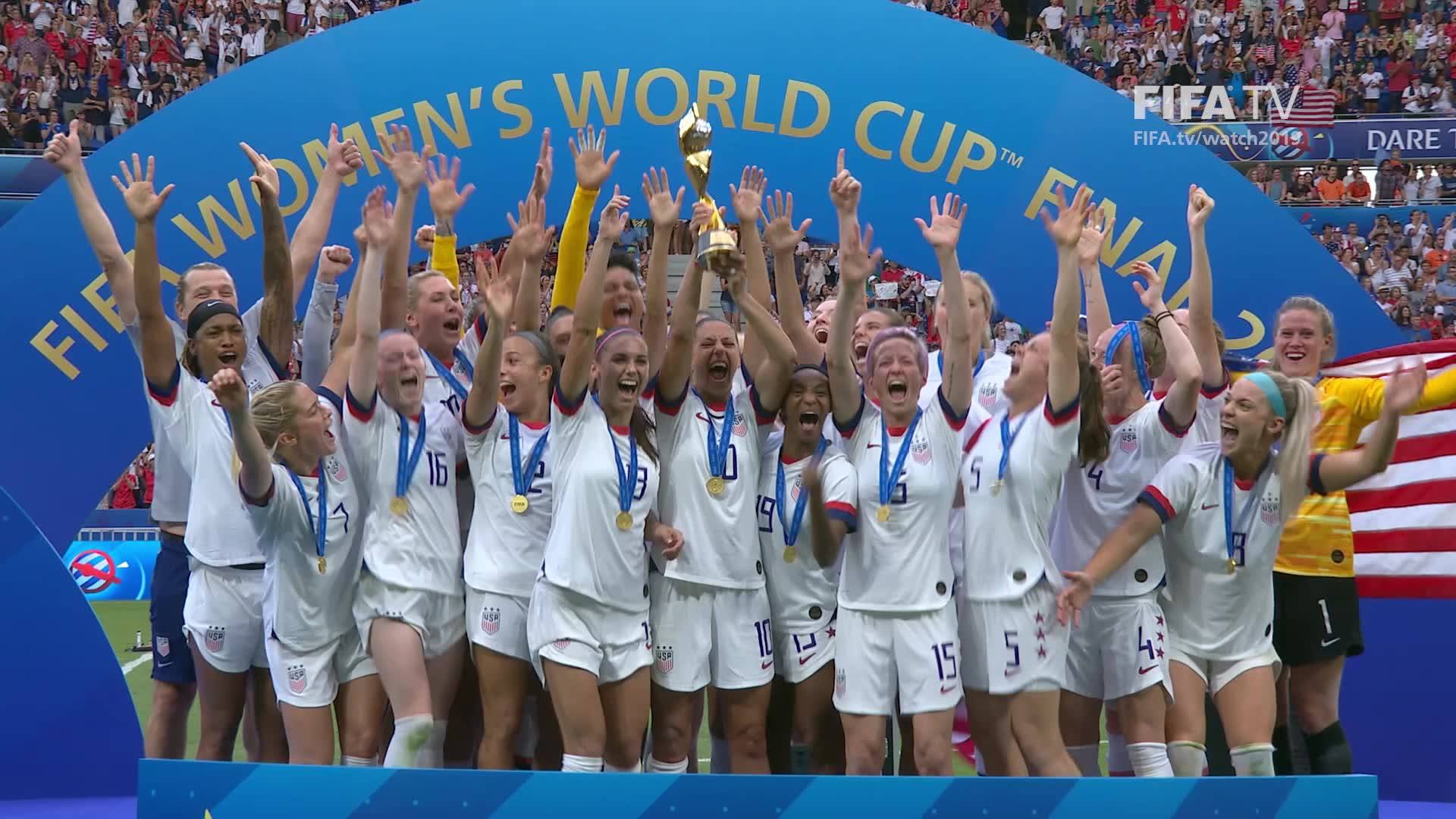
The US women's national soccer team's quest for the 2019 FIFA World Cup began on June 11, 2019, with a resounding 13-0 win over Thailand. In addition to being the largest margin of victory ever in a women’s World Cup match, the score also set a new record for the most goals in a single World Cup game — for both men and women. The team's incredible journey ended almost a month later on July 7, 2019, with a thrilling 2-0 victory against the Netherlands.
Team USA's second consecutive World Cup win, which puts it on par with Germany, which won the tournament in 2003 and 2007, did not come easily. The Netherlands soccer team, which before this had only played in one World Cup, proved to be a formidable opponent, defending the ball fiercely. On the rare occasions that the American players managed to create scoring opportunities, they were stopped by Dutch goalkeeper Sari van Veenendaal. Unlike the previous five matches, when the US managed to sneak in a goal or two within the first quarter, the game remained scoreless at the half.

The Americans finally got the break they had been seeking in the 61st minute, when US co-captain Alex Morgan was fouled in the penalty box by Dutch defender Stefanie van der Gragt. Fellow co-captain Megan Rapinoe took full advantage of this unexpected opportunity and scored a seemingly effortless goal. Rapinoe's third converted penalty and sixth tournament goal earned the 34-year-old forward both the Golden Ball (Most Valuable Player) and the Golden Boot (tournament's top scorer) trophies.
Team USA's second and the game's final goal, came shortly after, in the 69th minute, when 24-year-old midfielder Rose Lavelle, playing in her first major tournament, landed the ball into the net from a distance of about 18 yards. “Over the course of the game, it was hard to find that kind of space,” Lavelle later said. “Finally, there was an opportunity to take space. I decided to go for it. … I like my left foot, man, and I got it on my left foot.”

Despite their best efforts, the Netherlands team was unable to even the score, giving Team USA its second consecutive World Cup victory. Even more impressive, the women's soccer team has reached the finals five of the eight times the World Cup tournament has been held. It is also the first women's soccer team to reach three back-to-back finals and the only one to win a record four World Cup trophies (1991, 1999, 2015, 2019). Additionally, Jill Ellis, named 2015 FIFA World Coach of the Year, is the first women's coach to win two World Cup titles. This feat has only been achieved once before by Italian men's coach Vittorio Pozzo, whose team won the prestigious tournament in 1934 and 1938.
Ellis hopes the 2019 tournament will help further raise the profile of the women's game. "Your hope is [that] back in the U.S., more kids want to go out and play this great sport," she said. "I mean, that's ultimately the building block you build on. My hope is that more people get on board financially. You know, sponsors, they see the value in it. They see the marketing marketability of it, and then more little kids want to go and kick a ball around."

Once the team's celebrations, which began with a New York City ticker-tape parade attended by thousands of adoring fans on July 10, 2019, are complete, the players will focus on a more serious matter — pay equality. Despite being ranked first in world by FIFA, the female soccer players get paid far less than their male counterparts, who are currently ranked 30th. For example, the US Soccer Federation awarded the women's team a $1.7 million bonus for winning the 2015 World Cup. The men's team, on the other hand, received a $5.4 million bonus after they lost in the round of 16 in the 2014 World Cup.
The US Soccer Federation officials have defended the pay disparity by asserting that the women's games do not earn as much revenue as the men's. However, according to The Wall Street Journal, the US women's games generated about $50.8 million in revenue from 2016 to 2018, while the men's games earned a slightly lower $49.9 million during the same period.

To rectify the wage gap, on March 8, 2019 — which coincided with International Women's Day — all 28 members of the women's national soccer team sued the US Soccer Federation for gender wage discrimination. While equal compensation is the biggest issue, the lawsuit also alleges discrimination in medical benefits, travel, and training conditions. Hopefully, the US Soccer Federation officials, who have agreed to enter mediation talks with the players, will resolve the situation soon.
Resources: Time.com, NPR.org, thehill.com, huffpost.com.
